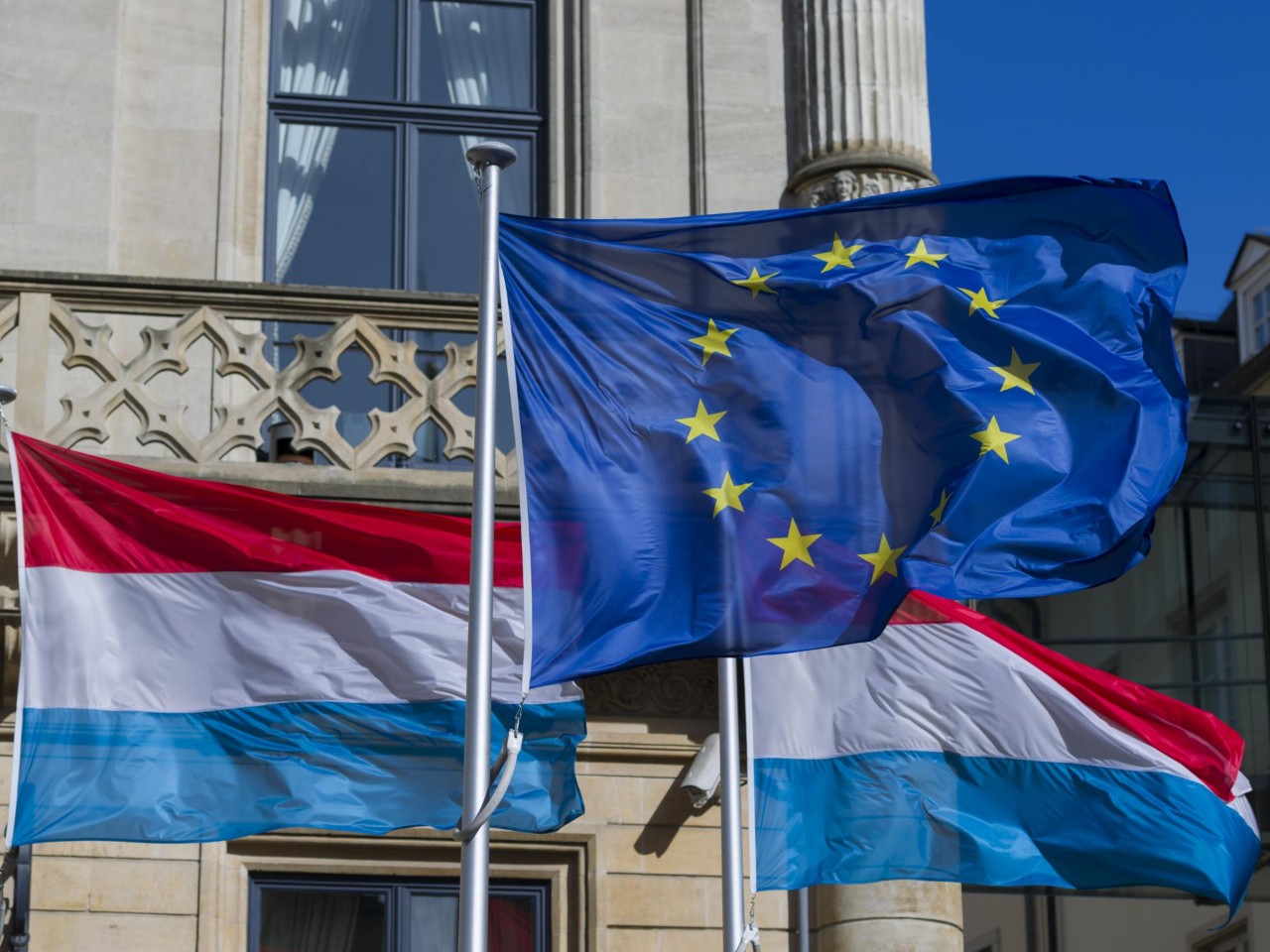Openness to the world

At the end of World War II, Luxembourg abandoned its status of neutrality, which did not protect it against two invasions, and guaranteed a place for itself in the international communities formed after 1945. With an understanding that peace is built through unity, the country became a founding member of all the major international organisations and an ardent advocate of the European construction.
Abandoning neutrality
The Grand Duchy is a founding member of all the post-war multilateral cooperation institutions:
- the United Nations and UNESCO (1945);
- the Benelux (1944);
- the Organisation for European Economic Cooperation (OEEC) (1948);
- the Council of Europe (1949)
- the North Atlantic Treaty Organisation (NATO) (1949);
- the Organisation for Economic Cooperation and Development (OECD) (1961).
However, the decisive opening up of the country took place within the framework of European unification. When France's Minister of Foreign Affairs, Robert Schuman, launched his plan outlining the creation of a European Coal and Steel Community (ECSC) in 1950, Luxembourg was directly involved. With great skill, its diplomats succeeded in securing the provisional seat of the High Authority of the ECSC in Luxembourg City in 1952. The creation of the ECSC placed the main resource of the Grand Duchy, namely its steel industry, under the control of a supranational authority. This represented a risk, but also an opportunity for Luxembourg, since its significant steel production allowed it to become a fully-fledged member of the Community bodies.
In 1957, Luxembourg was a signatory of the Treaties of Rome, which founded the European Economic Community (EEC) and regulated the use of nuclear energy (Euratom). In the negotiations, the government managed to have the principle of legal equality accepted for all states, even the smallest, and to obtain direct representation in the European Institutions.
Luxembourg, capital of Europe
Since 1965, Luxembourg is one of the three capitals of the European Union, alongside Brussels and Strasbourg. Luxembourg City is home to a number of important Community institutions: the Secretariat General of the European Parliament, the Court of Justice, the European Investment Bank, various units of the European Commission, the European Court of Auditors, the Publications Office, etc.
To host the institutions and thousands of personnel, a new district is built outside Luxembourg City. The Kirchberg district is today synonymous with the European Institutions and has become one of the economic centres of the country, as well as an architectural gem.
Ardent Europeans
Its small size has not prevented the Grand Duchy from playing an active role in the construction of Europe.
Prime Minister Pierre Werner (1913-2002) can be considered as one of the forefathers of the euro. Appointed head of a group of experts, he presented a monetary union project (Werner Plan) to the European Commission as early as 1970. The monetary union saw the light as a result of this plan, which ultimately led to the creation of the euro.
Three Luxembourg statesmen, Gaston Thorn (1981-1985), Jacques Santer (1995-1999) and Jean-Claude Juncker (2014-2019) have presided over the European Commission to date.
Jean-Claude Juncker also distinguished himself as President of the Eurogroup from 2005 to 2013.
The country's relationship with the EU is marked by two more distinctions:
- The Schengen Agreement (1985) and the Schengen Convention (1990), which abolished border controls, were both signed in Schengen, a Luxembourg village by the Moselle river.
- In 1985, the Charlemagne Prize was awarded to the country and all of its citizens, in light of the exemplary and determined efforts made in the interests of Europe's peoples.
Last update

